Introduction
WhatsApp campaigns and email marketing continue to captivate businesses seeking optimal return on investment (ROI). A recent study by Omnisend revealed that WhatsApp marketing boasts an impressive open rate of 98%, eclipsing email's average of 20% (Source: Omnisend, 2022).
Furthermore, Narrate's research indicates that WhatsApp campaigns yield a remarkable 40% conversion rate, significantly surpassing email's 3.2% (Source: Narrate, 2023).
However, email remains a formidable force, with a global user base of 4.3 billion in 2022, according to Statista. Moreover, a Campaign Monitor report highlights that for every $1 invested in email marketing, the average ROI stands at $36 (Source: Campaign Monitor, 2022).
As businesses grapple with allocating resources effectively, the choice between WhatsApp campaigns and email marketing hinges on factors such as target audience, campaign objectives, and industry dynamics.
So which channel has the better ROI? Continue reading to know more about it.
Understanding ROI in Marketing
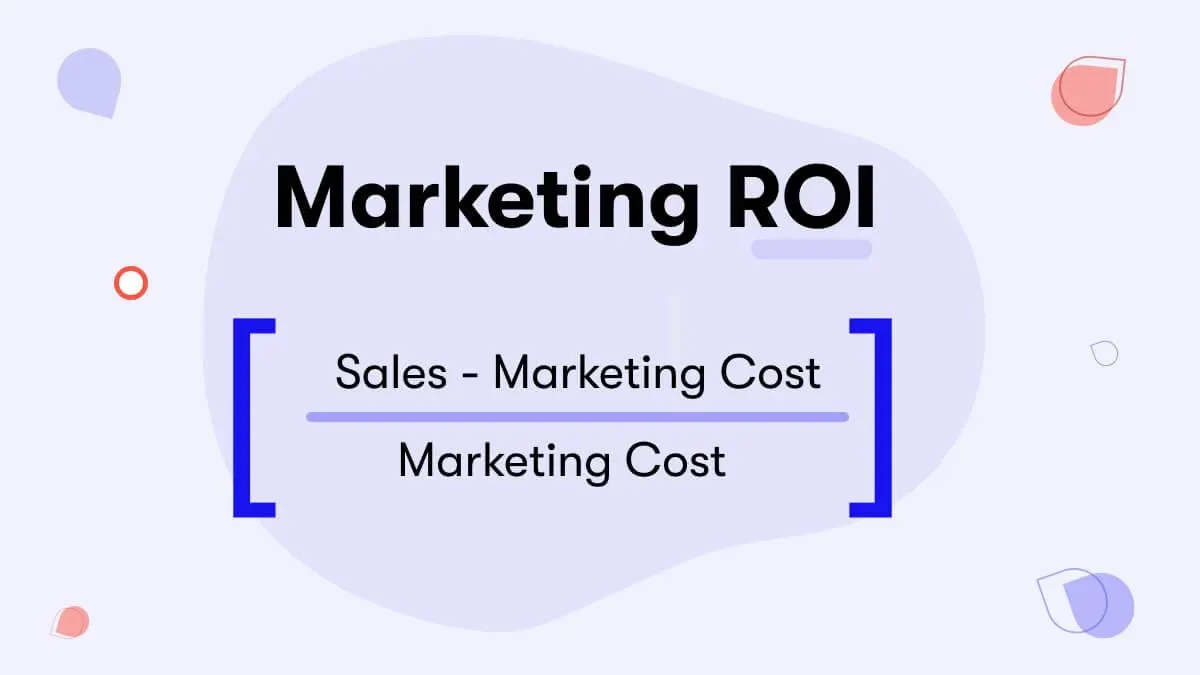
In simple terms, ROI measures the profit you get from every dollar you spend on marketing. It tells you if you're on the right track or if you need to switch things up.
Calculating ROI for Your Campaigns
Here’s how you do the math: Subtract the cost of your marketing campaign from the profit you made. Then, divide that number by the campaign's cost.
The answer tells you how successful your campaign was in terms of money made versus money spent.
Now, bringing WhatsApp marketing into the mix, it's got a lot going for it. This personal touch platform lets you chat directly with customers, share updates, and even use a WhatsApp chatbot to automate conversations.
Using marketing on WhatsApp can sometimes give you a better return because it's direct, immediate, and has a high engagement rate.
But remember, success with WhatsApp for marketing (or any tool, really) isn't just about launching campaigns. It's about tracking what happens after.
How many sales did you make? Did customers who chatted with your WhatsApp chatbot end up buying more? These are the kind of details that help you nail down your ROI.
WhatsApp Marketing for Businesses
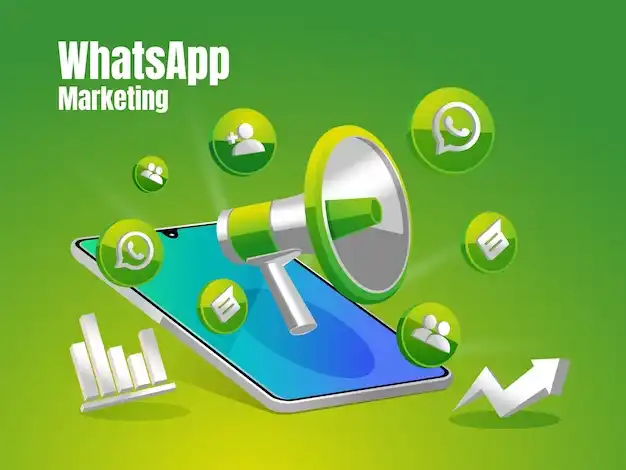
Ever noticed how almost everyone's eyes are glued to their WhatsApp chats? Imagine tapping into that attention for your business.
That's where WhatsApp marketing comes in. It’s all about using WhatsApp to chat directly with your customers, promote your stuff, and keep them hooked. But there's a twist.
For businesses, there’s a special flavor of the app called WhatsApp Business.
What is WhatsApp Business App and How Does it Differ from the Regular App?
The WhatsApp Business App is like the more sophisticated sibling of the regular WhatsApp we all know and love. It's designed specifically for small business owners.
Think of it as your storefront in the chat world. It lets you set up a business profile with all the essential info customers might need - like your address, what you offer, and when they can reach you.
Plus, it's got some cool tools to organize chats, automate messages, and track how well your messages are doing.
Benefits of Using WhatsApp for Marketing Campaigns
Let's face it, when that WhatsApp ding goes off, we're quick to check it. This is why WhatsApp marketing shines.
Messages sent through WhatsApp have crazy high open rates compared to emails. This means more eyes on what you have to say or sell, making it a powerful marketing on WhatsApp.
Direct and Conversational Communication
One of the best things about using WhatsApp for marketing is the chat vibe. It's not like sending a cold, formal email. It's chatting.
This direct line to your customer makes interactions feel more personal and friendly. You can answer questions, offer help, or just catch up - making your brand feel like a friend.
Rich Media Capabilities (Images, Videos)
Remember the last time you tried to email a big video? Painful, right? WhatsApp crushes this problem.
Whether it’s a tour of your new product, a quick how-to video, or some eye-catching images, marketing with WhatsApp means you can send it all with a tap. It not only makes your messages more engaging but also lets you show off your products or services in action.
And taking your first step towards chatbot-enabled WhatsApp automation isn't that tough. Meet Botpenguin, the home of chatbot solutions. It not only provides chatbot for WhatsApp but also caters to the demand of all users by offering chatbot solutions for multiple platforms:
- WhatsApp Chatbot
- Facebook Chatbot
- Wordpress Chatbot
- Telegram Chatbot
- Website Chatbot
- Squarespace Chatbot
- Woocommerce Chatbot
- Instagram Chatbot
Email Marketing
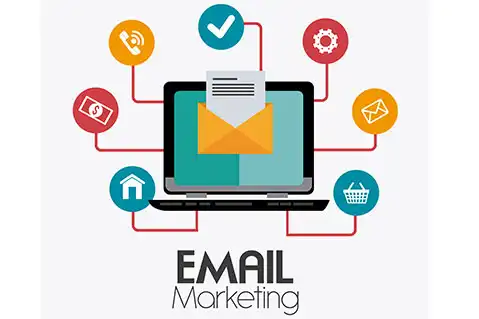
Are you using email to reach out to your customers? If not, you might be missing out on a big opportunity.
Email marketing is all about sending messages, promotions, and updates right to your customers' inboxes. It's a classic, but it's still very powerful.
Let's dive into why it’s a good idea for businesses.
Scalability and Cost-Effectiveness
Imagine reaching a thousand, or even a million customers, without spending a fortune. Email marketing makes that possible.
It doesn't matter if you're talking to ten people or ten thousand; the effort and cost are almost the same. This makes email marketing incredibly scalable and cost-effective, especially for businesses watching their budget.
Suggested Reading:
Measuring Email Marketing Success: Key Metrics to Track
Segmentation and Personalization
Emails can be super personal. You can send different messages to different groups of people based on what they like or what they've bought before.
This means your messages hit home more often, which can lead to better results from your marketing efforts.
Long-Form Content and Brand Storytelling
Have a story to tell about your brand? Emails give you the space to do just that. Unlike a quick social media post, an email can be a mini-article.
This lets you dive deep into your message and connect with your customers on a different level.
WhatsApp vs Email Marketing: A Feature-by-Feature Comparison
When comparing WhatsApp marketing to email, there are a few key areas to focus on. Let's break it down table-style.
Feature | WhatsApp Marketing | Email Marketing |
Open Rates | High, because messages feel personal and immediate | Lower, due to the sheer volume of emails people get |
Click-Through Rates (CTRs) | Generally high, due to the easy-to-use platform | Varies, but can be optimized with effective CTAs and content |
Conversion Rates | Good, especially for time-sensitive offers | Good, with effective segmentation and personalization |
Cost per Acquisition (CPA) | Can be low if used effectively with a WhatsApp chatbot | Low, due to the scalability and cost-effectiveness of email |
Analytics and Reporting | Basic, primarily through message reads and replies | Comprehensive, with detailed insights on engagement, CTRs, and more |
While both WhatsApp for marketing and email marketing have their strengths, the choice between them depends on your specific business needs.
WhatsApp marketing shines in creating personal, immediate connections, especially when using a WhatsApp marketing tool or a chatbot for WhatsApp. Email marketing, on the other hand, excels in detailed storytelling, segmentation, and analytics.
Whichever you choose, the key is knowing your audience and how they prefer to receive your messages.
Whether it’s through the personal touch of marketing on WhatsApp or the targeted, rich detail of email campaigns, both methods offer unique benefits to grow your business.
The ROI of WhatsApp Campaigns
When you hear about WhatsApp marketing, you might wonder, "Is it really worth it?" Well, let's talk numbers and real-life stories to see how this tool can work wonders for businesses.
Potential ROI Benefits of using WhatsApp Marketing
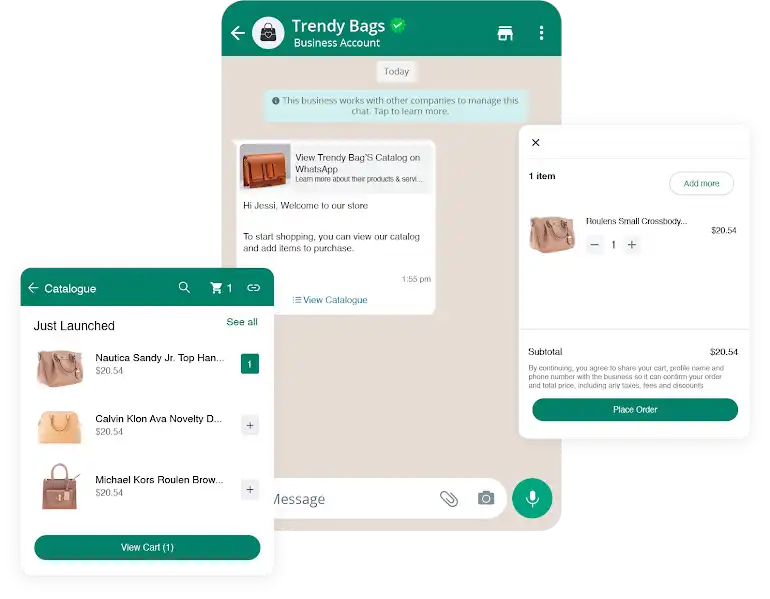
WhatsApp marketing isn't just about sending messages; it's about building a connection. This personal touch can lead to higher engagement rates.
For example, some companies using marketing on WhatsApp have seen open rates of up to 98%! That’s almost everyone you're sending a message to actually reading it.
But what does this mean in terms of return on investment (ROI)? Higher engagement can lead directly to higher sales. Imagine sending a message about a special sale and having nearly all your recipients see it. The potential for increased sales is huge.
There’s also the efficiency factor. A WhatsApp chatbot can handle customer inquiries without a break, providing instant responses. This not only enhances customer satisfaction but can also free up your team to focus on other tasks, thereby saving costs and potentially increasing your revenue.
Case studies have shown impressive results. For instance, a retail company introduced a WhatsApp marketing tool and saw a 5x return on their marketing spend.
They used the platform to send personalized recommendations and updates, which led to increased customer purchases.
The ROI of Email Marketing
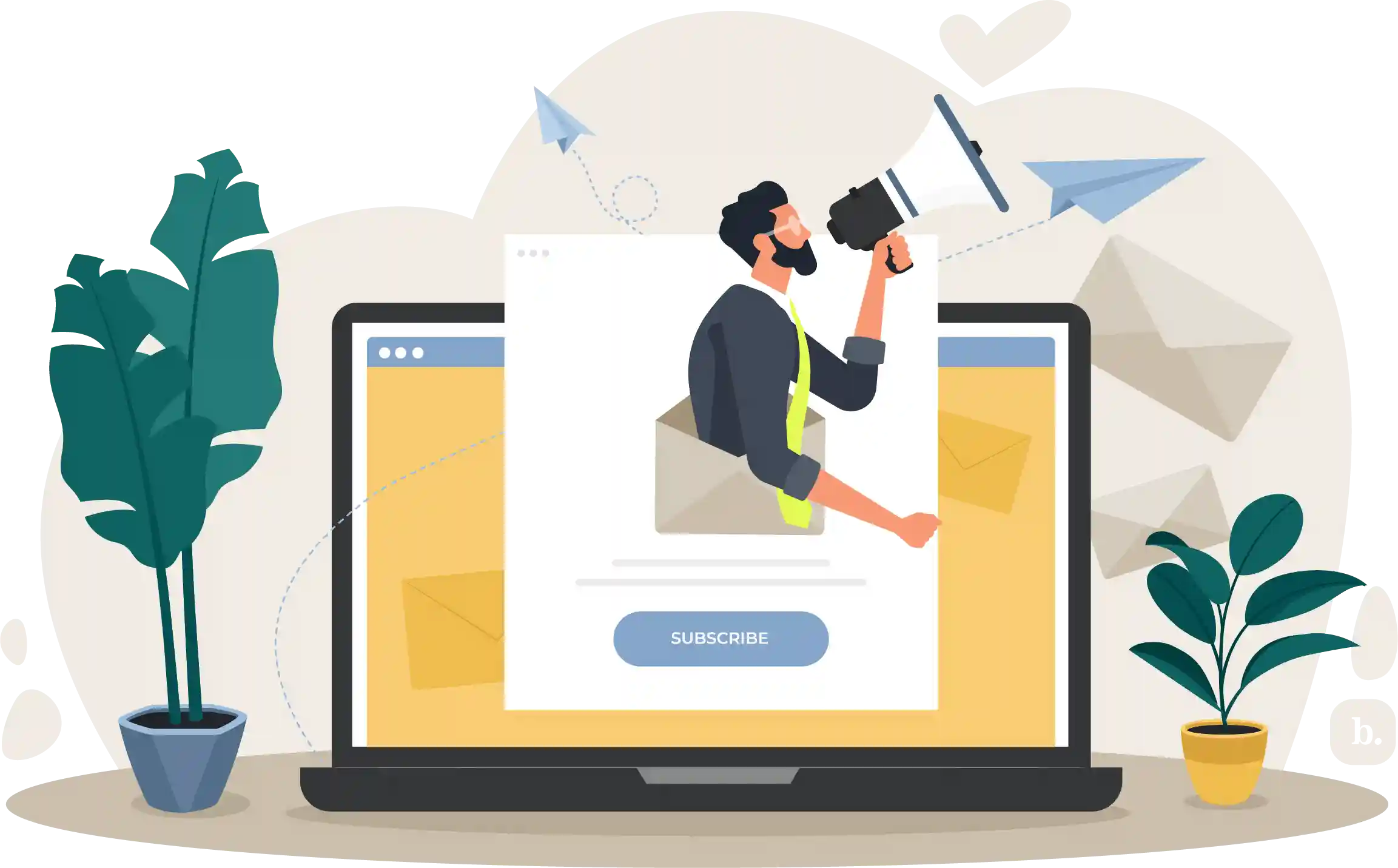
Now, let's shift gears to email marketing. It's one of the oldest online marketing methods, but its effectiveness shouldn't be underestimated.
Potential ROI Benefits of Using Email Marketing
Email marketing is like a Swiss Army knife - versatile and capable of delivering great results. The Direct Marketing Association once reported that email marketing has an average ROI of $38 for every $1 spent. That's a serious bang for your buck.
But why does it work so well? Segmentation and personalization play a big part. By tailoring emails to specific groups within your audience, companies have seen as much as a 760% increase in revenue from segmented campaigns.
This means you can send personalized deals and information to people based on their interests and previous purchases, making them more likely to buy again.
Also, with the rise of analytics tools, businesses can get into the nitty-gritty of what works and what doesn’t. This data-driven approach helps companies refine their strategies, targeting audiences more effectively and boosting ROI.
A noteworthy case study comes from a fashion retailer that revamped its email strategy to focus on personalization and automated triggers, such as abandoned cart emails. This led to a 400% increase in revenue from email in just a year.
Suggested Reading:
Personalization and Its Effect on Email Marketing Metrics
Choosing the Right Channel for Your Business
When it's time to shout-out about your brand, it's like picking the right shoes for the right occasion.
You've got WhatsApp and email, both ready to send your message sprinting across the world. Here's the low-down on picking the winner for your hustle.
Target Audience and Demographics

First off, think who's going to hear you.
Are they the type who have their phone glued to their hand, where a WhatsApp marketing message pops up like a text from a friend?
Or are they the kind that opens their inbox expecting news and detailed reads?
Campaign Goals and Objectives
Next, what's your aim? Do you want an easy 'hello' that gets a quick 'hey!' back? Then a WhatsApp chatbot is your guy.
Or maybe you're playing the long game, where you weave a story through emails – that's where you reel them in slow but sure.
Suggested Reading:
Top 10 Use Cases and Applications of Whatsapp chatbot
Industry and Product/Service Type
Finally, what are you selling? A sneak peek of something awesome, an instant deal that can't wait?
Marketing with WhatsApp can deliver that sense of 'grab it now'. But if you need space to explain the finer details, settle in with an email.
Can WhatsApp and Email Marketing Work Together?
You bet they can! It's a tag-team for your marketing muscle: WhatsApp for marketing grabs attention, and email keeps the conversation going.
Like having both a speed-dial and a heart-to-heart. Use a WhatsApp marketing tool for punchy messages, and an email to follow up with all the extra juicy bits.
Conclusion
The choice between WhatsApp campaigns and email marketing ultimately depends on the specific goals, target audience, and industry of a business.
While WhatsApp boasts impressive open rates and conversion metrics, email marketing remains a tried-and-true channel with a vast user base and a proven track record of delivering substantial ROI.
According to a recent study by Salesforce, the average ROI for email marketing across industries is 3800%, with the highest ROI observed in the consumer products and retail sectors (Source: Salesforce, 2022).
However, the same study also highlights that businesses in sectors like healthcare and technology tend to see better engagement and conversion rates through messaging apps like WhatsApp.
Ultimately, the most effective approach may be to leverage both channels in a complementary manner, tailoring the messaging and content to the unique strengths of each platform.
By embracing an omnichannel strategy that combines the immediacy of WhatsApp with the broad reach of email, businesses can maximize their ROI and deliver a seamless, personalized experience to their target audience.
Frequently Asked Questions (FAQs)
How do WhatsApp campaigns compare to email in terms of open rates?
WhatsApp messages usually see higher open rates than emails, often because instant messaging feels more personal and is checked more frequently.
Are WhatsApp campaigns more cost-effective than email marketing?
WhatsApp can be cost-effective with no costs per message, but remember, it requires a phone number, which might limit audience reach compared to email.
Can I personalize WhatsApp campaigns like I do with emails?
Yes, WhatsApp allows for personalization, but it’s typically more conversational and less formal than the tailored content you might use in emails.
Which channel delivers messages to users more reliably, WhatsApp or email?
WhatsApp generally has better deliverability with messages appearing directly on a user’s phone screen, whereas emails can sometimes get lost in spam folders.
How do customer engagement rates in WhatsApp campaigns stack up against email?
WhatsApp tends to have higher engagement rates as users can reply instantly and interact in a familiar, chat-like environment.


